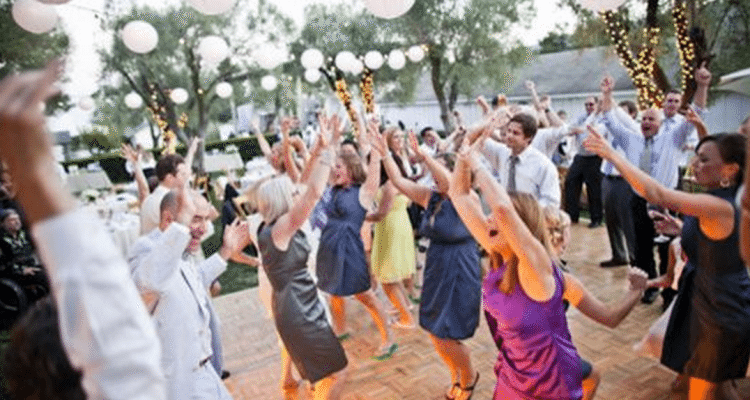We’ve all been to “one of those weddings” — the kind where you need to amuse yourself between the ceremony and the reception because they’re hours apart, or you find yourself stuck in a receiving line that never ends. To keep your friends and family smiling instead of gritting their teeth in frustration, consider these tips during your wedding planning stages.
Have Your Wedding Pictures Taken Before The Ceremony

Be considerate of your friends’ and family’s time. Remember, some of them may have to pay for babysitters and can’t afford to spend an entire day at your wedding. Plan on having your wedding photos done before the ceremony, when everyone in the wedding party is looking fresh.
This will allow you to glide smoothly from ceremony to the reception with only a short travel time in between (assuming the reception is being held in a different location). Your guests will appreciate it.
Forget The Receiving Line
Traditionally, the bride, groom and wedding party stand in a receiving line so that guests can wish them well. Consider dropping this custom if you’ve invited a lot of guests to your ceremony. It is very time consuming and most people don’t even know a good portion of the wedding party. As well, you’ll always have “chatters” that will hold the line up, causing the guests behind them to become impatient. Most people really only want to congratulate the bride and groom and move on. If you insist on a receiving line, keep it minimal. Have only the bride, groom and parents receive the guests, rather than the entire wedding party.
Consider the Timing of Your Ceremony and Reception
If you’re holding your wedding on a Friday or Saturday, then this usually doesn’t cause much of a problem. But if you’re holding your wedding on a Sunday evening or a weekday, keep in mind that people have to get up to go to work the next day.
Tight timing is important here if you’re including a dinner and dance reception. In fact, it’s probably best if you hold the ceremony and reception in one location to cut out travel time. Do your photos before the wedding as well. The ceremony should be as short as possible, then move smoothly into the reception area for dinner. Rather than starting your dance at 9pm according to custom, plan it for some time earlier, such as 7:30 or 8pm.
Cash Bar Or Not?
Cash bars have become more commonplace lately, for two main reasons:
a) the cost of an open bar can be tremendous, and
b) guests can easily drink too much if it’s free liquor.
This is a touchy area for most bridal couples and their guests. Family and friends often expect drinks to be free as part of the reception. As a couple, including the cost of liquor should be a part of your wedding budget.
On the other hand, if guests have to pay for their drinks, they tend to drink a lot less and it may help curb someone from trying to drive home drunk. Free-flowing drinks can also cause other problems, such as disorderly drunkenness where guests are dancing on the tables — or even breaking into fights. So whether to have a cash bar or a free bar is something you’ll want to carefully consider. A possible solution to this is to include one or two bottles of wine per dinner table, and have a cash bar during the dance.
Do All The Speeches Early
As the evening progresses, people tend to drink more. It’s best to ask anyone who is to give a speech or toast to keep their drinking to a minimum (or not to drink at all) until they’ve presented their speech. Schedule speeches early in the reception. Once people get drinking, their tongues tend to get looser and they may say things that aren’t appropriate during their speech if they’ve consumed too much liquor.
Try Not to Split Up Your Attendants and Their Partners
It can be very awkward not only for your attendants, but especially for their spouse and/or date to be seated separately. It’s really not necessary to have a head table for the wedding party. Consider having two or three tables at the front of the room to hold the wedding party and their respective partners. If you do want to include a head table, consider placing another table close to the front and seating your attendant’s partners at that table together.


